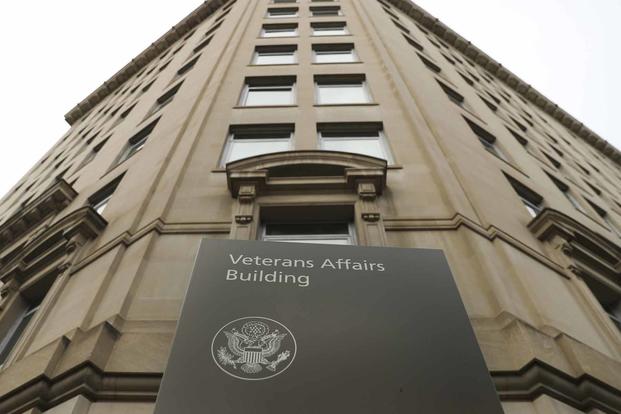An administrative officer at the Washington, D.C., Veterans Affairs Medical Center is under investigation for tweeting details of a veteran's surgery and mocking the procedure as a waste of taxpayer money.
The employee, who works in the hospital's anesthesia department, posted a screenshot of a note about the procedure -- a penile implant for a veteran patient with erectile dysfunction.
"72 y/o male gets government funded surgery," wrote @CarrieeeeC, using an eggplant emoji to denote a penis.
The post and the employee's Twitter account have since been deleted, but its presence on social media caused outrage over the release of a former service member's medical information.
"If I worked for the Department of Veterans Affairs -- I certainly wouldn't be posting the medical information of a patient I was privileged too [sic]," wrote one Twitter user, @GhostHostJustin, who captured the post and tweeted it. "Seems like that could be bad. And mocking him, no less."
Read Next: Soldiers Have 3 Months to Get COVID Vaccine or Face Discharge, with Few Waiver Options
A VA official said Tuesday that the department is aware of the incident and "takes it very serious [sic]."
"An investigation is underway and the employee has been removed from all access to Veteran medical records for the foreseeable future," spokesman Terrence Hayes wrote in an email to Military.com.
The screenshot of the preoperative anesthesia note provides no identifiable details for the patient but lists the date of the surgery as Sept. 7 and includes his blood pressure, heart rate and other vital signs.
Patient information is protected by the Health Insurance Portability and Accountability Act, or HIPAA, which requires health care companies, hospitals and anyone involved in the health services to protect information that goes into medical records.
While the anesthesia note that was disclosed would not necessarily be inserted into a permanent health record, it would qualify as information shared among providers regarding treatment, which also is protected by HIPAA, according to the Department of Health and Human Services.
A number of factors can contribute to erectile dysfunction, from mental health conditions such as post-traumatic stress disorder, depression and anxiety, to medications for treating physical and mental conditions, as well as injuries, illness and aging.
A 2019 study showed that veterans with PTSD have a higher rate of sexual dysfunction than their civilian counterparts, while some veterans also have physical or psychological injuries that can affect sexual performance.
A 2015 study found that roughly 18% of veterans have some type of sexual dysfunction. The VA considers sexual health to be not only a reproductive issue but a quality-of-life issue, affecting emotional and mental well-being and physical health.
Penile implants usually are reserved for patients who don't respond to medication for erectile dysfunction or are not candidates for other treatments for sexual dysfunction, according to an informational summary from the Mayo Clinic.
The surgery is complex, taking between 45 minutes to two hours. It requires five to eight weeks of recovery time for a healthy individual or longer for older men, a representative for a company that sells penile implants to the VA and oversees the surgeries told Military.com.
He asked that his name not be used because he was not authorized by his company to speak to the press.
-- Patricia Kime can be reached at Patricia.Kime@Monster.com. Follow her on Twitter @patriciakime.
Related: Tricare Panel Votes to End Coverage of Brand-Name Viagra, Cialis











